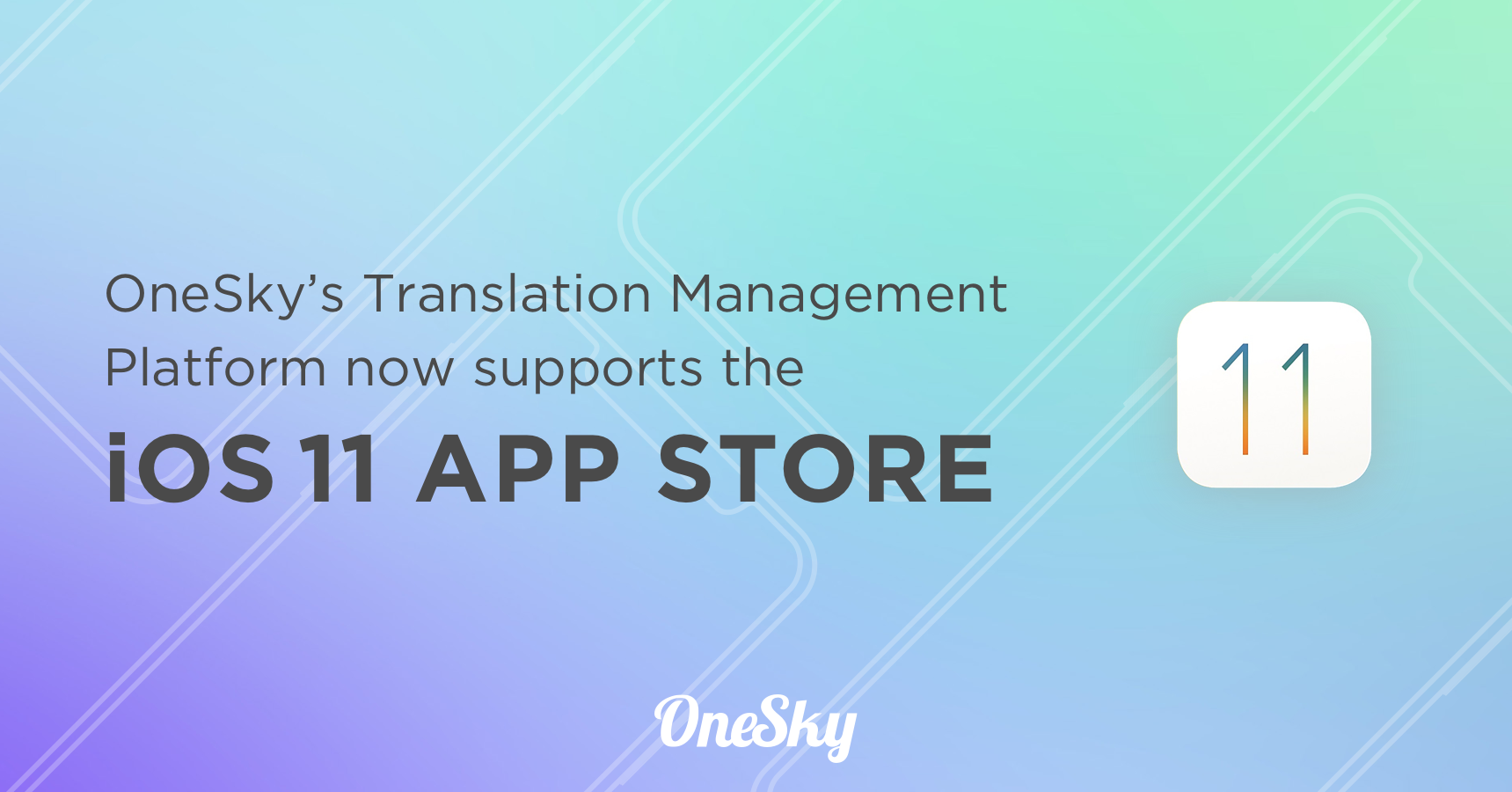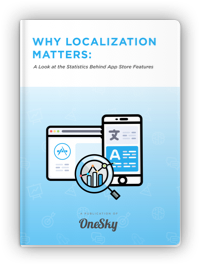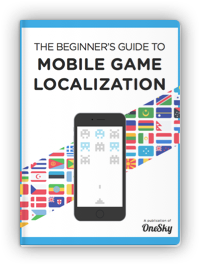Gearing up for Web Localization? Five Must-See Presentations

Introduction
For English speakers, it’s easy to pretend as if the internet is just a giant English-language playground, ruled by American companies like Apple, Google, and Microsoft. But that sense of dominance can be misleading. Only 28.6% of internet users are native English speakers. Major new markets—and major new internet companies—are growing around the world. There’s a huge demand for products that bridge language markets.
The lesson here should be fairly obvious: every business with an online presence should at least think about localizing their product for languages and cultures outside the English-language market.
Web localization can be profitable. But you need to be savvy. You can’t just run your text files through Google Translate and then launch your snazzy new website in another country. Translation is an art, and it requires partners who have an intimate familiarity with other cultures, as well as an awareness of the technical challenges that crop up when you’re taking a website global.
Fortunately, there are some great resources out there to help you access the 70% of web users whose first language is something other than English. In this post, we’ll show you the five best SlideShares presentations for people looking to globalize their site.
Know the global landscape
1. Yiibu: The Emerging Global Web
In this top-notch SlideShare, Yiibu—a user experience design and consulting firm—traces the emergence of the global web. With beautiful graphics and a stylish layout, Yiibu shows how the internet went from a niche tool, mostly used in developed countries, to a widespread global phenomenon, all in the space of 15 years.
This SlideShare also offers a great introduction to global social media platforms, and to the ways in which people around the world are harnessing digital tools to commerce. Have you ever heard of the livestock merchant in sub-Saharan Africa who uses Instagram to sell sheep? Have you ever wondered about the e-commerce scene in China? Yiibu will give you a one-of-a-kind world tour.
2. KPCB: Internet Trends Report
Kleiner, Perkins, Caufied, & Byers is one of the world’s top venture capital firms, and their 2014 report on internet trends is a must-read for anyone who works in the internet business. In the report, KPCB give a comprehensive view of internet trends worldwide. They cover everything from global internet traffic to the future of TV to the rapid growth of Tinder.
They also hone in one of the decade’s biggest trends: the epic growth of the Chinese market. More generally, if you want to understand the globalization of the internet, the KPCB analysis is key.
“Only 6 of the top 10 global Internet properties are made in USA, while >86% of their users are outside America.” -KPCB
Incorporate localization into your content strategy
3. Dot-Connection: Issues in Content Localization
Sure, a lot of people speak English. But in this presentation, Lise Bissonnette Janody, a consultant at Dot-Connection, points out that most internet users prefer to read online contents in their native languages.
Janody lays out the essential details for making web localization an integral part of content strategy, and not just a parallel process tacked on at the end of development. She gives tips on how to make localization simpler, talks about how to set localization targets, and shares strategies for monitoring the localization progress. With just 50 slides, it’s one of the best quick-guides to web localization that we’ve seen.
“Ability is not preference – 9 of 10 Internet users would access [the] web in their language if given the choice.” – Lise Bissonnette Janody
Globalize your SEO strategy
4. SurveyMonkey: Stop Playing Soccer When The Rest of The World is Playing Football
SEO is a delicate game: play it right, and your website will get major traffic, because it’s highly visible on search engines like Google and Bing. Play it wrong, and you can slide into obscurity. When you take your site abroad, SEO gets even trickier, but SurveyMonkey marketing manager Eli Schwartz will show you how to drive traffic in whatever part of the world you wish to go.
Schwartz covers technical-sounding topics like subdomain/subdirectories and HREFLAND in an accessible way. He discusses how Google works differently in other languages, and he offers some tricks for testing out multilingual keyword searches. He also offers some good advice—namely, to be careful about your translations, as Google may penalize the poorly translated websites.
“Don’t machine translate. Google can recognize machine translated content AND you will offend real users.” – Eli Schwartz
Develop a front-end solution that fits the global web
5. Booking.com: 2200+ different ways to view a website
There aren’t many businesses more global than Booking.com, which helps people find hotels around the world. The most remarkable thing, though, is that Booking.com has a single, coherent front-end solution that works for 42 different languages and 54 different currencies.
How do they juggle that many localized versions of a single site? Eduardo Shiota Yasuda, an engineer and designer at Booking.com, will show you how. Shiota covers technical subjects like CSS and language selector tools, as well as the ways that engineers can deal with local currencies, right-to-left languages (such as Hebrew), and local laws and cultures. Don’t get swamped by the technical details, though. Shiota emphasizes, adapting website contents into local culture is always they key of localization.
“[When it comes to localization,] keep the customer at the center of everything you do.” – Eduardo Shiota Yasuda
Any suggestions?
Are there any great presentations that you feel like we’ve missed? Any questions or ideas that you’d like to share? Let us know in the comments!


 Written by -
Written by - 




 Written by
Written by 


